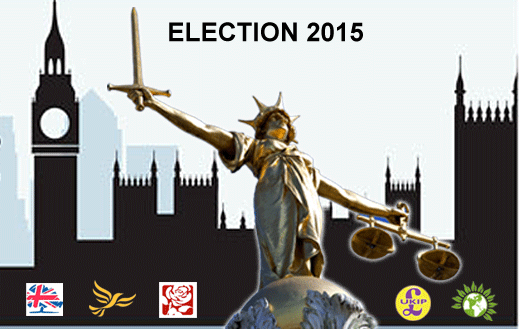With another hung parliament likely, we may have to wait a while for any new laws.
In the UK, a government must command the confidence of the House of Commons to remain in power. That is fundamental to our system of parliament democracy. But what does it involve?
If a single party holds 326 or more of the 650 seats in the House of Commons, it can outvote an opposition challenge. Because some MPs do not vote, a slightly lower figure will do. But no party won an overall majority at the last general election and none is expected to do so this time either.
So it is likely we shall have another hung parliament.
That is far from unusual and not necessarily a problem. A government can survive on the strength of a formal coalition, an informal understanding or a minority of seats in the Commons. Even a minority coalition is possible.
But who decides? It is important to remember that during a general election campaign all ministers remain in office, including the prime minister. The essential business of government must carry on during and beyond the election, although caretaker ministers should avoid long-term commitments.
So David Cameron remains the sovereign’s principal adviser. Unless one party wins an overall majority, it must surely be his duty to remain in Downing Street until he has offered his advice to the Queen on who should be invited to form the next government.
As prime minister, he can try to do so first – even if he does not head the largest party. Negotiations with other parties could take a couple of weeks or more and he should not give his advice to the Queen until he knows where he stands. According to the Cabinet Manual, an existing government ‘is expected to resign if it becomes clear that it is unlikely to be able to command [the confidence of the House of Commons] and there is a clear alternative’. But ‘an incumbent government is entitled to wait until the new parliament has met to see if it can command [that] confidence’. Parliament won’t meet until 18 May and, with the Queen’s speech set for 27 May, a confidence vote would not be held before June at the earliest.
Even if the prime minister resigns, his job is not over. At the time of his resignation, the Whitehall handbook adds, he ‘may also be asked by the sovereign for a recommendation on who can best command the confidence of the House of Commons in his… place’.

Commanding the confidence of the Commons is not purely a matter of arithmetic: in a hung parliament, the governing party may not have the largest number of MPs. Its survival depends on whether two or more minority parties would be willing to combine forces and outvote it. But those opposition parties may be too far apart on ideological grounds to form a governing coalition.
They might think that joining forces would alienate their supporters and lose them votes in the future. And yet they might not want to force an early general election. So a government may be able to survive if it can persuade one or more of the minority parties not to oppose it on supply – which means the budget – and on a confidence vote.
Even so, those opposition parties might allow the government only limited scope to legislate. A minority party could struggle on until, say, this autumn – when we might have a second general election (with at least one new party leader). Even losing the occasional Commons division would not be fatal, provided the government could survive a formal vote of confidence.
Surely an early election would be inconsistent with the Fixed-Term Parliaments Act 2011? Was not that act passed to avoid the need for an election to be called after a government lost a confidence vote?
The act sets the date of the next general election after this one as 7 May 2020. But it provides two ways of bringing the date forward. First, an early election must be held if at least 434 MPs support a motion to that effect. Second, an election will be triggered if a formal motion of no confidence in the government is passed and no motion of confidence in any alternative government is passed within the following 14 days. A defeat on the Queen’s speech would presumably lead to a change of prime minister but not necessarily an election.
A third way of precipitating an early election would be for parliament to repeal the act, which it could do by a simple majority. In the absence of any provision to the contrary, the prerogative powers under which parliament used to be dissolved would presumably revive – although some scholars doubt this.
What it all means is that it may be a while before we have any new legislation. But I expect we’ll cope.































No comments yet